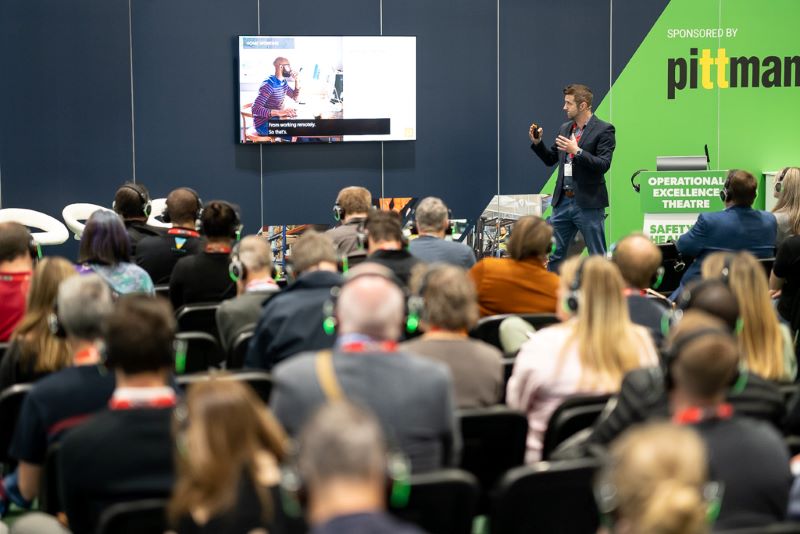Last month, Freddie McGrath, Marketing Director at Peoplesafe delivered a captivating presentation at the Safety & Health Expo 2023 which runs alongside IFSEC, in London, on ensuring employee safety in today’s hybrid work environment. Here, we highlight the essential takeaways from his talk, emphasising the importance of protecting employees, whether they’re working in the office or remotely.
According to the CIPD, 78% of employers now offer hybrid working options. With more flexible working patterns now available concerns have surfaced around keeping employees safe across sites, and just how far an employer can get involved in home-working arrangements.A survey of 2000 employers and 1000 businesses carried out by the technology-led employee safety business Peoplesafe showed a higher focus on wellbeing against the context of a shifting balance of power between the employer and the employee. As Freddie McGrath, Marketing Director at Peoplesafe, noted in his talk at Safety & Health Expo 2023, “There was a time when an employer would ask, ‘what can you do for me?’ but now it’s the employee asking that.’”
The Health and Safety at Work Act 1974 has the duty of care for an employee’s safety as a ‘shared responsibility’ to some extent, but hybrid working now means the employer “touches on the edge of personal safety” as the lines between work and home life become blurred.
Furthermore, the hybrid employee is now in a position where mental health and wellbeing issues include isolation, the inability to switch off, lack of support and guidance and communication issues.
Of the 6.8m employees who express concerns about their personal safety at work, hybrid workers report the highest level of personal safety concerns at 72%, compared to 46% WFH and 59% on-site employees.
In the Peoplesafe survey, it was shown that people feeling unsafe “is prevalent outside the workforce,” with 60% of respondents registering concerns about using public transport at off-peak times, 50% with concerns about travelling alone to and from work, and 65% were concerned about working in an unfamiliar location.
‘Employers should be responsible’
Over half (51%) of respondents thought employers should be responsible for their employees outside of working hours. There is, of course, nothing “set in stone from a legislation perspective” on this last point, as McGrath points out, and he suggests that things should be looked at on a “case by case basis” in terms of need – “not everyone has the same perception of risk.”
One of the big concern areas is travelling for business, with 75% indicating this was a worry. 52% of the employers responding to the survey did not operate a check-in system for business travellers, the fall-out of which was that 30% of employees reported a concern about the lack of this facility from employers.
It’s certainly a sizeable task. McGrath gave an example of a NHS team of 50 people who, during the pandemic, were checked on by phone at the start and end of their working day. McGrath sees this kind of scenario, where a manual process is used, as an administrative burden and one that has “room for error.” This is the raison d’etre of Peoplesafe, of course, who offer app-based technology solutions enabling check-ins for business travel and customer visits.
Another area in which the Peoplesafe service has previously been deployed is for employees in situations of domestic abuse, which is an issue that saw a dramatic rise in cases during lockdown when working patterns changed.
Source: IFSEC GLOBAL


